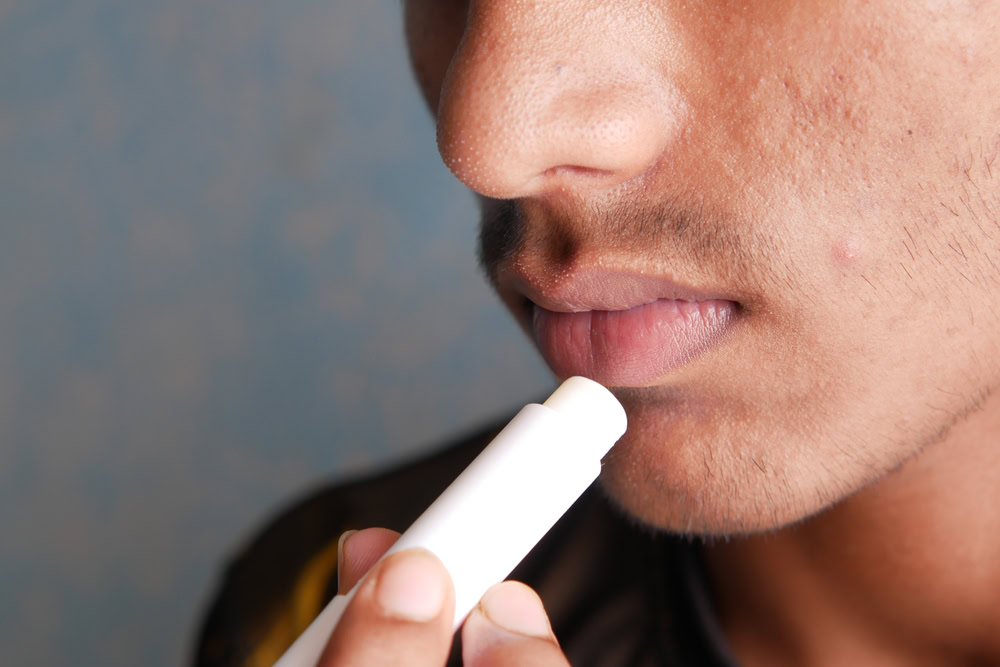Does Lip Balm on Lips Break One’s Fast?
Answered by Shaykh Bassem Itani
Question
Does lip balm on lips break one’s fast?
Answer
All praise is due to Allah, Lord of the worlds, and blessings and peace be upon our master Muhammad, his Family, and all his Companions.
Lip Balm
It is a compound made of oily, waxy, moisturizing, flavored, colored, and medicinal substances, used to treat chapped lips, dryness, and inflammation of the corners of the mouth using a small tube. Lip ointment is the same as lip balm, except it is thicker in substance. It is used by both women and men, but predominantly by women, and (ChapStick) is a brand of lip balm.
Ruling
Contemporary scholars have mentioned that if any part of the lip balm is swallowed, it invalidates the fast due to the composite materials in it, and the user must make up the day of Ramadan. If none of the material is swallowed, then the fast remains valid, and there is nothing upon the person. This follows the general rule in fasting:
“Nothing entering the stomach through the mouth invalidates the fast, and anything that does, invalidates it.“
This rule is indisputable and is a necessary piece of information regarding fasting.
Does Lip Balm on Lips Seep into the Stomach?
However, the precise question is: does applying lip balm on the lips not cause it to seep into the stomach through the mouth?
After investigating this matter in reality, we find that applying lip balm on the lips causes it to seep into the mouth gradually. This is because the user applies it to the outer lips, which necessarily connect to the inner moist lips through continuous saliva while opening and closing the mouth, such as when speaking, placing teeth on the lips, and introducing water for rinsing, where the substance mixes with the water.
Lip balm remains fixed for a period of two hours or more due to the fats and stabilizers. It is known that fatty substances spread and expand in their place, and the particles of the substance begin to seep into the mouth, mix with the saliva, and then get swallowed by the fasting person. All this leads to the invalidation of the fast.
As for those who equate applying lip balm with rinsing the mouth during fasting, this is not accurate, because there is a significant difference between the two. The residue from rinsing does not affect the fast, meaning it does not invalidate it, even if the taste of water remains, because that is excused and cannot be avoided by consensus.
Water from rinsing does not stay in the mouth except for a few seconds and is then expelled by the fasting person, and the taste of moisture quickly disappears. However, the seepage of lip balm is continuous due to its persistence, and the taste does not leave the mouth until the balm itself is gone. Swallowing occurs because the balm remains in the mouth, and we have not seen anyone spitting out the seepage once it has mixed with saliva; rather, it is swallowed.
Summary
Based on this, lip balm should not be applied during fasting in the month of Ramadan because the substance seeps into the mouth, and swallowing occurs whether the user is aware of it or not. This leads to the invalidation of the fast, and only making up the day is required due to the swallowing, without any expiation (since it is not typically eaten or drunk). [Shurunbulali, Maraqi al-Falah]
Those who need to use lip balm during Ramadan can do so during the night, after sunset until dawn. This provides ample time to treat chapped and dry lips.
And Allah knows best and is Most Wise.
[Shaykh] Bassem Itani
Shaykh Dr. Bassem Hussayn Itani was born in Beirut, Lebanon, in 1965. He earned his Ph.D. in Islamic Studies in 2005. Among his mentors were Shaykh Muhammad Taha Sukkar, Shaykh Adib al-Kallas, Shaykh Mulla Abdul ‘Alim al-Zinki, Shaykh Abdul Rahman al-Shaghouri, Shaykh Abdul Razzaq al-Halabi, Shaykh Dr. Mustafa Dib al-Bugha, Shaykh Dr. Wahba al-Zuhayli, Dr. Muhammad al-Zuhayli, and others, may Allah have mercy on them all.
Shaykh Itani has a rich background in both academic and administrative fields. He has held significant positions in many governmental and non-governmental institutions in Lebanon and abroad. This includes his role as a member of the Academic Committee at SeekersGuidance and a senior teacher with the free online global seminary.
From 2020 to 2021, he served as the Dean of the College of Da‘wa – University for Islamic Studies (Lebanon) – Postgraduate Studies. He was the Director of Dar Iqra for Islamic Sciences from 1998 to 2018. Shaykh Itani is a well-versed teacher in several academic subjects, including Fiqh, Usul, Aqida, and Tafsir. He has supervised and examined numerous Master’s and Doctoral theses at various universities and colleges in Lebanon.
His contributions to Islamic sciences are also evident in his writings and research. His notable works include “The Relied-upon Statements of Imam Zufar in the Hanafi School,” “Collective Ijtihad: The Sublimity of Thought in the 21st Century,” and “Custom and its Impact in Islamic Jurisprudence.” Shaykh Itani has actively participated in numerous scientific conferences and seminars, both in Lebanon and internationally. He is linguistically adept, excelling in Arabic, proficient in French, and comfortably conversant in English.
